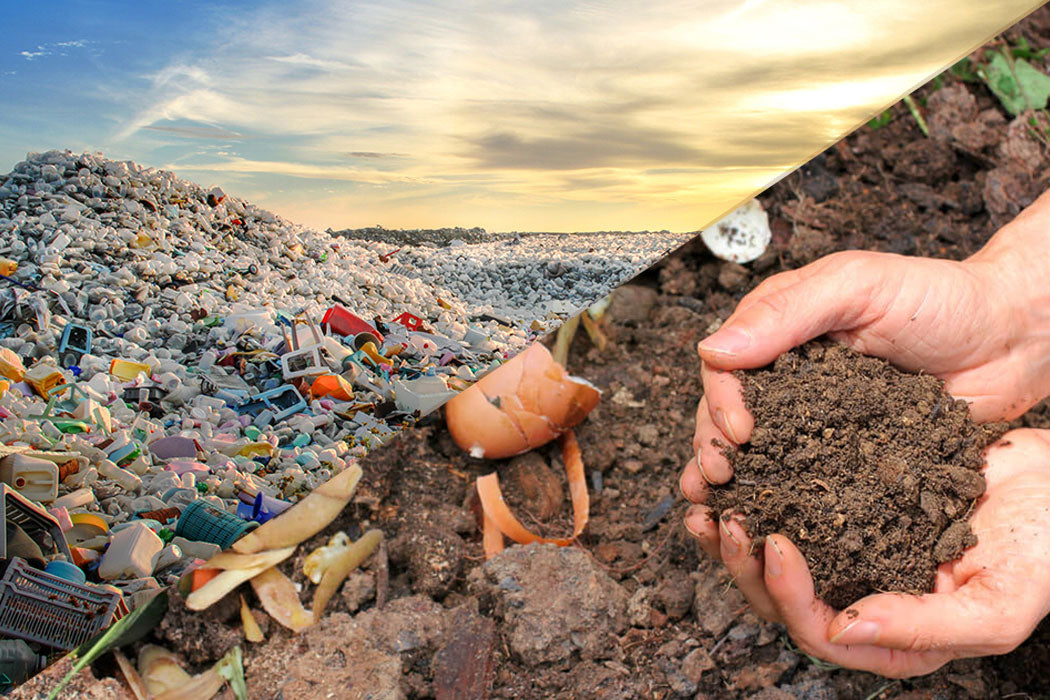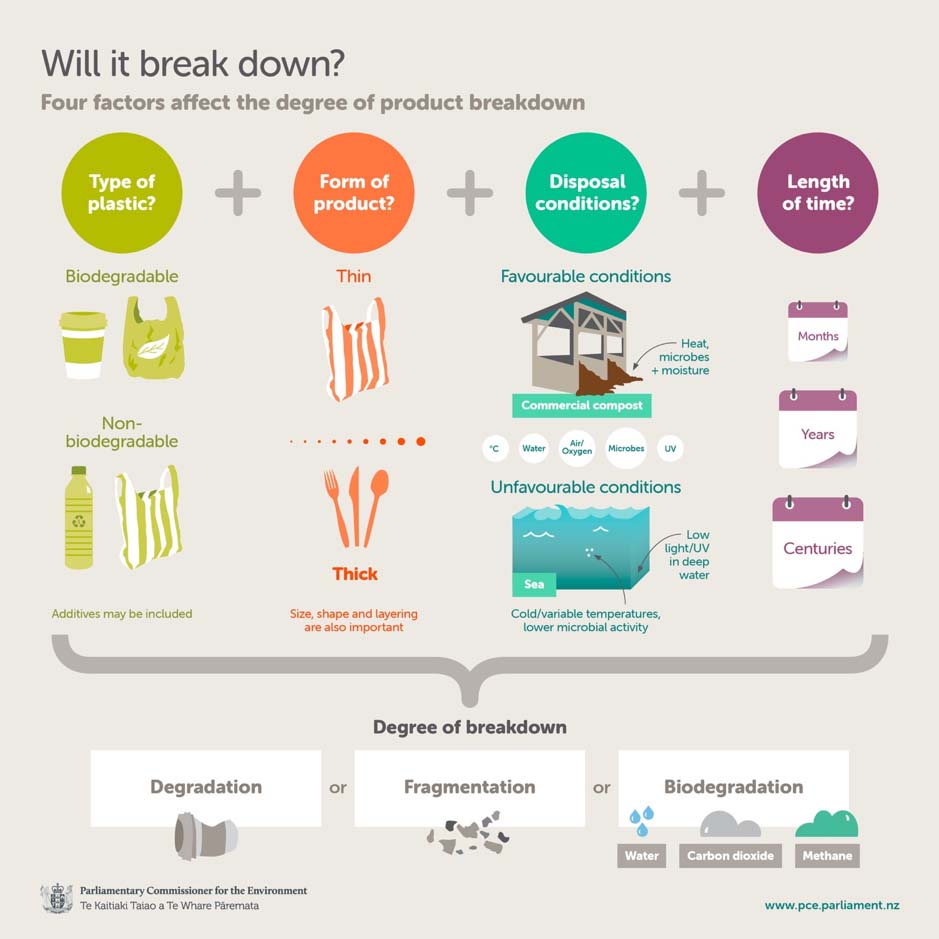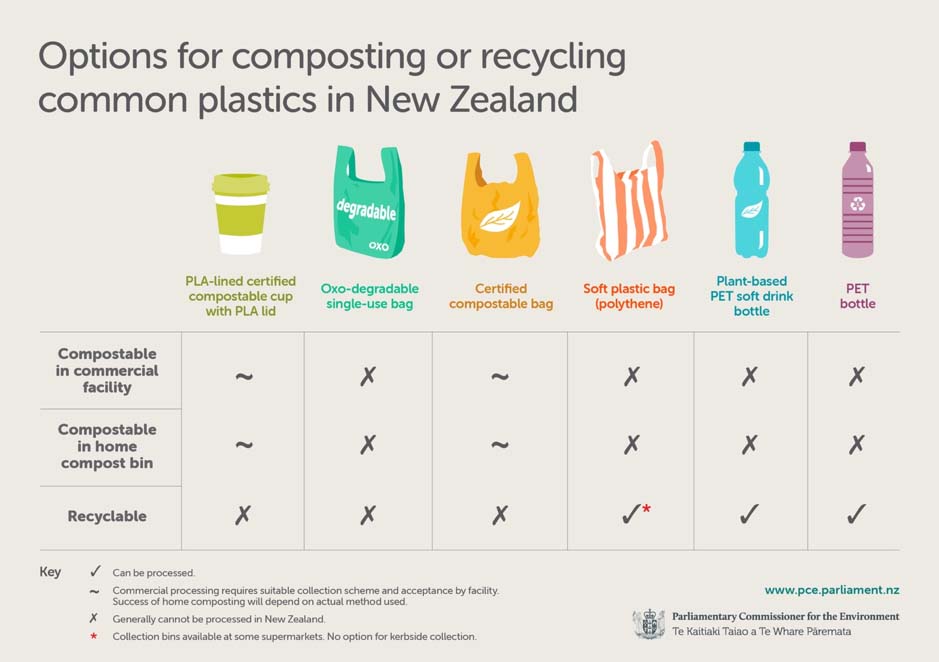
Biodegradable and Compostable Plastics, What Are They Different?

We generally think of plastics as being manufactured from petrochemical (or fossil-fuel)-based source. But plastics can also be derived from other sources, including microbes and plants. These plastics are known as ‘bio-based’ plastics.
What does it mean to say that plastic is biodegradable?
Biodegradable means that an item can be broken down by the action of living organisms, typically microbes. In the case of biodegradable plastics, this process is enabled by enzymes that are produced by microbes that use the plastic as a source of energy – the microbes are essentially eating the plastic for food.
What does it mean to say that plastic is compostable?
Composting involves the breakdown of biological material such as green waste from garden clippings or food scraps into humus.6 Industrial compost facilities are designed to accelerate microbial growth by controlling moisture, airflow, microbial activity and the proportions of different organic wastes. As the microbes consume the waste, they generate heat, which accelerates the breakdown. The resulting product, compost, is then used to return organic matter to the soil.
What do biodegradable plastics break down into?
Ultimately, a biodegradable plastic will break down into small molecules, such as carbon dioxide, methane and water, as well as waste from microbial activity. The speed of biodegradation will also be important in terms of environmental impact.
What does it mean to say that plastic is certified as biodegradable?
A product that is certified biodegradable should meet a robust international standard. Examples of such standards include those that apply in Europe and Australia. These standards include a range of tests for biodegradability that consider different receiving environments, such as wastewater treatment plants, freshwater or marine environments. The ability of plastic to biodegrade specifically in compost is explained further below.
What does it mean to say plastic is certified as compostable?
Products that are certified compostable will usually have been tested in commercial composting conditions. They will not necessarily biodegrade in a home compost heap. Standards for home composting are very different with respect to the length of time over which products are tested and the temperatures required. Few home composting standards exist.
Do plastics have to be bio-based to be biodegradable or compostable?
No. These plastics can be made from biological sources, such as plants or microbes, or fossil sources. Biodegradability and compostability is a matter of chemistry, the disposal environment and time.

Are biodegradable or compostable plastics better for the environment than conventional plastics?
It depends. Biodegradation means that the plastic will not persist in the environment for as long.
However, it should not be viewed as a way of dealing with litter. If littered, even certified biodegradable plastics may not break down in the way expected.
Composting may be a way of diverting waste from landfill, but the ability to deal with compostable plastics depends on the availability of facilities to process this waste. Compostable or biodegradable plastics may contain additives.
If additives are present, ultimate biodegradation into small molecules may not be possible within timeframes that reduce or remove their environmental impact.
There are also questions around the climate change implications of the breakdown of biodegradable and compostable plastics.
What are the climate change implications of biodegradable and compostable plastics?
There is a fundamental difference between fossil-based and bio-based plastics in terms of the production of greenhouse gases. Even when a fossil-based plastic completely biodegrades, it will be adding new carbon dioxide to the atmosphere.
By contrast, a bio-based plastic that completely biodegrades will effectively simply cycle the carbon that was removed from the atmosphere when the plant grew – i.e. this is a carbon-neutral process that does not add any more carbon dioxide to the atmosphere.
Both types of biodegradable plastics could produce methane, a potent greenhouse gas if they decompose under anaerobic conditions.

Reference:
https://www.pce.parliament.nz/publications/biodegradable-and-compostable-plastics-in-the-environment
New Blog
Tags
Scan to wechat :
